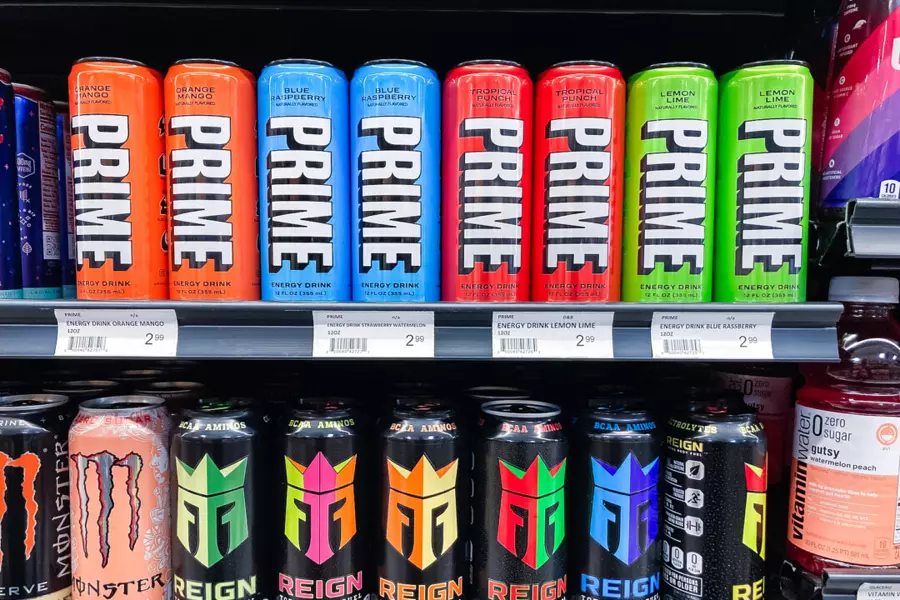The consumption of energy drinks has been associated with an increased risk of cardiac events among individuals with genetic heart diseases (GHD), according to a recent study. Researchers explained that the highly stimulating and unregulated ingredients found in these beverages may alter heart rate, blood pressure, cardiac contractility, and cardiac repolarization in potentially proarrhythmic manners.
The study focused on the impact of energy drink consumption among people with genetic heart diseases by analyzing data from patients who survived sudden cardiac arrest (SCA. The researchers noted that individuals with GHD have a higher risk for SCA and sudden cardiac death. The rising popularity of energy drinks, coupled with increasing caffeine content per serving and the presence of several unregulated ingredients, has raised concerns about their use among people with genetic heart diseases.
Among 144 SCA survivors, seven (5 percent) were found to have consumed one or more energy drinks in close proximity to the cardiac event. Of these individuals, six were female. The researchers stated that “energy drinks could be triggering SCA in individuals with GHD.” Energy drinks are mainly consumed by men in the age group of 18-34 years.
Three out of the seven patients reported frequent energy drink consumption, while the remaining four had infrequent consumption patterns. Following their sudden cardiac arrest events, the seven patients ceased energy drink consumption and have been free from cardiac events since then. The researchers concluded that even though larger cohort studies are needed to ascertain and quantify precise risks, “an early warning should be made about the potential risks of these drinks in these patients.
The study received funding from the Mayo Clinic Windland Smith Rice Comprehensive Sudden Cardiac Death Program and the Mayo Clinic Center for Translational Science Activities. A conflict of interest involving a researcher who was a consultant for multiple firms, including Abbot, BioMarin Pharmaceuticals, and Medtronic, existed during the study. The researcher and Mayo Clinic have license agreements with various entities such as Pfizer, ARMGO Pharma, and Thryv Therapeutics; however, none of these companies were involved in the study.
Researchers recommend that medical experts caution patients with genetic heart diseases about consuming energy drinks. Individuals with these conditions “should monitor energy drink consumption, especially in combination with other potential risk factors in their daily life that could trigger an event.” Additionally, the researchers advised keeping caffeine consumption within limits and ensuring proper nutrition and hydration.
The time span between consuming energy drinks and the occurrence of the cardiac event varied from immediately to within 12 hours before the event among the patients analyzed in the study. Caffeine content in energy drinks ranges between 80 to 200 mg per serving, while an 8-ounce cup of brewed coffee contains 100 mg of caffeine.
The June 5 study also called on the U.S. Food and Drug Administration (FDA) to investigate the potential connection between energy drink consumption and cardiac events among people with genetic heart diseases. The researchers pointed out that many energy drinks claim to include natural ingredients, which leads to these products being classified as dietary supplements rather than medications. This classification allows energy drink companies to avoid regulation by the FDA and disclose precise caffeine content and ingredients for each serving.
Some of the potential dangers associated with energy drinks include anxiety, insomnia, dehydration, and heart complications like irregular heartbeat and heart failure. The CDC cited the American Academy of Pediatrics to state that “caffeine and other stimulant substances contained in energy drinks have no place in the diet of children and adolescents.
The study highlighted a particular brand called PRIME Energy Drink, which contains 200 milligrams of caffeine in a 12-ounce can. This is equivalent to almost two, 250-milliliter (ml) containers of Red Bull and about six 250-ml cans of Coca-Cola. The high caffeine content has led to concerns among parents and pediatricians, prompting calls for the FDA to investigate PRIME for its absurd caffeine levels and marketing targeting children on social media.

